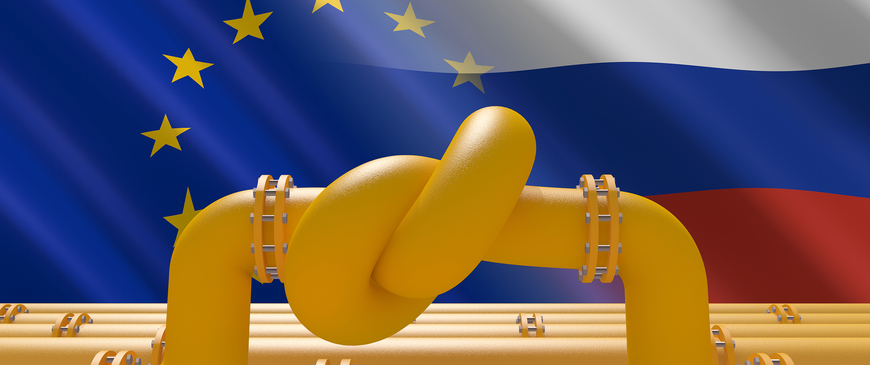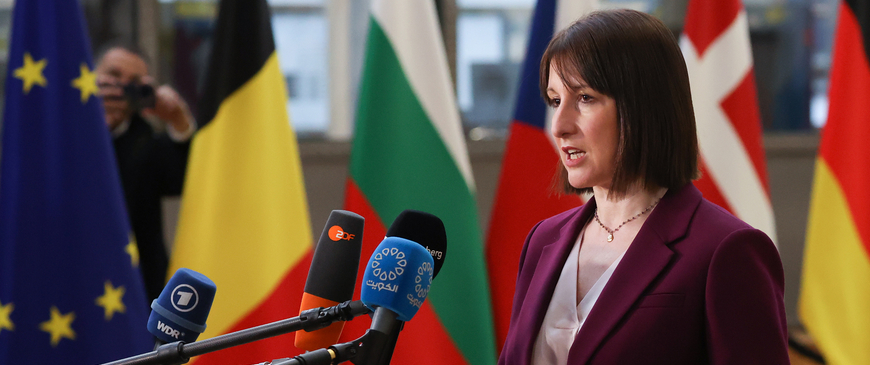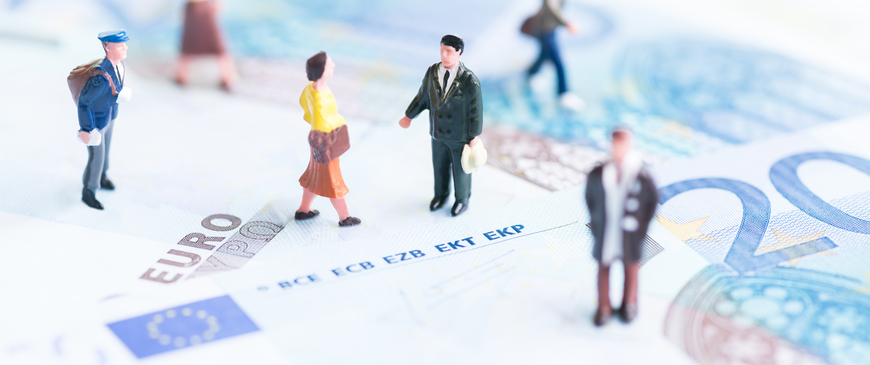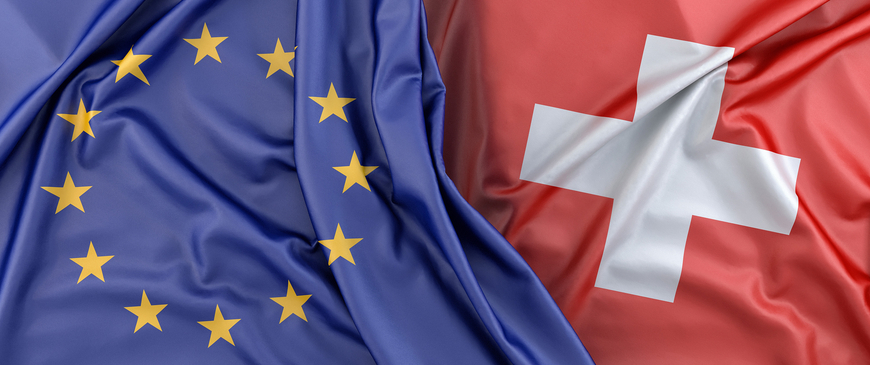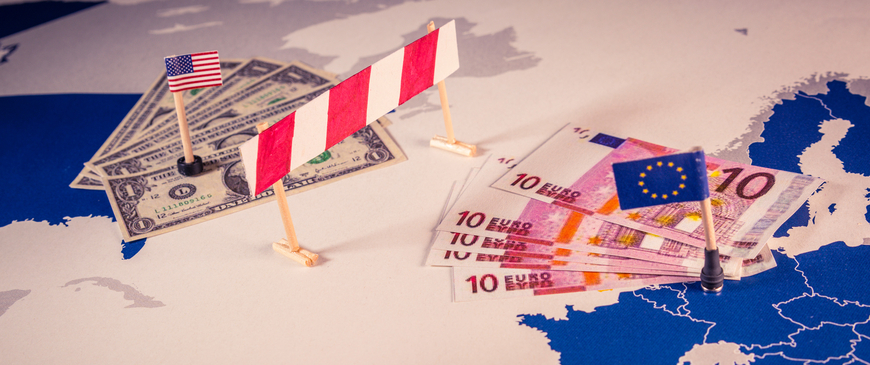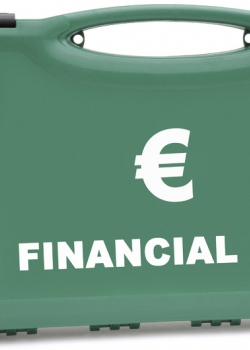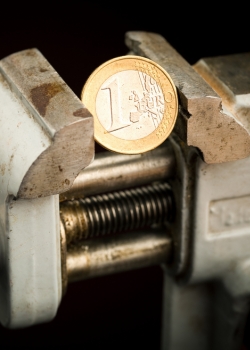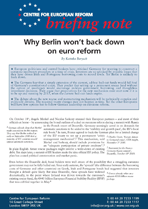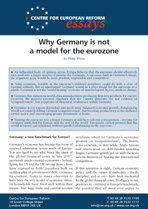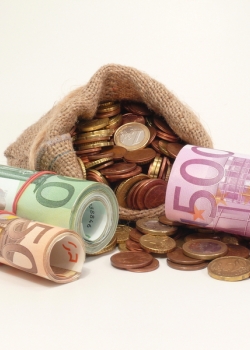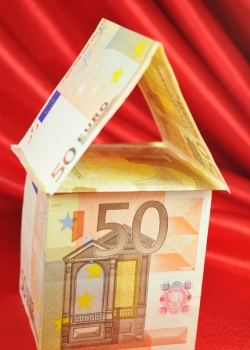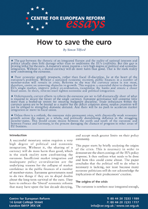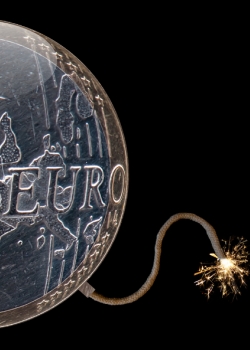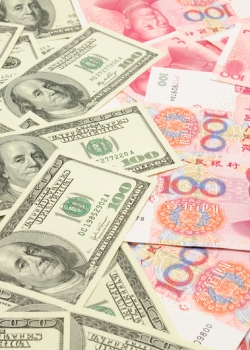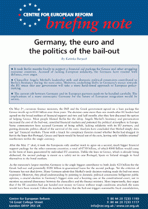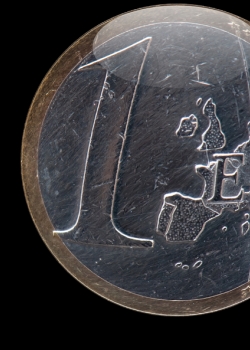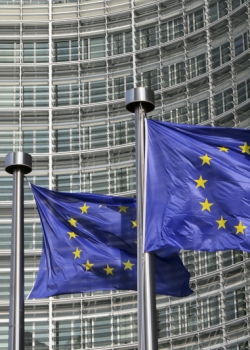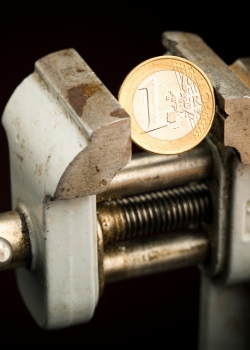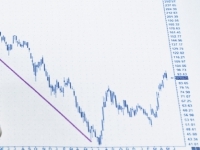Single market, competition & trade
The next five years of the euro crisis: Five key questions
01 December 2010
Will the euro break up?
The euro crisis is rooted in structural imbalances that even on an optimistic scenario will endure for years. Germany has a current account surplus and weak domestic demand, while Greece, Ireland, Italy, Portugal and Spain - after years of profligacy - suffer from current account deficits...
The euro crisis is rooted in structural imbalances that even on an optimistic scenario will endure for years. Germany has a current account surplus and weak domestic demand, while Greece, Ireland, Italy, Portugal and Spain - after years of profligacy - suffer from current account deficits...
Issue 75 - 2010
26 November 2010
- The eurozone enters a critical phase, Simon Tilford
- The next five years of the euro crisis: Five key questions, Charles Grant
- Britain cannot afford to neglect EU defence efforts, Clara Marina O'Donnell
Why Berlin won't back down on euro reform
19 November 2010
The German plan for a eurozone insolvency procedure has spooked the markets and drawn political fire.
Eurozone policy-makers are playing with fire
15 November 2010
There is an awful inevitability about the latest instalment of the eurozone crisis, which looks highly likely to culminate in Ireland being forced to seek a bailout from the European Financial Stability Fund (EFSF).
Why Germany is not a model for the eurozone
22 October 2010
Many Europeans believe that confidence in the eurozone is best restored by turning the region into a larger version of present-day Germany. However, Germany is not the world-beating economy of current myth.
What currency wars mean for the eurozone
15 October 2010
The dollar has now fallen to $1.40 against the euro. This is still below the low of almost $1.60 that it reached in the middle in July 2008, but it represents a steep decline from under $1.20 in early June. Moreover, the US currency is likely to weaken further.
Divisions remain over euro reform
08 October 2010
Europeans agree that the management of the euro must be improved to prevent future crises, or deal with them better if and when they happen.
The EU's new supervisory architecture - evolution or revolution?
01 October 2010
In early September EU finance ministers approved the Commission's proposals for reforming the EU's supervisory architecture for financial services.
The political consequences of the euro crisis
01 October 2010
The eurozone crisis is changing the way the EU works. It is reinforcing a number of trends that had already been visible over the last decade or so: a shift towards a Union in which governments are in the driving seat, large countries matter more than small ones, and more decisions are taken by subsets of member-states.
Issue 74 - 2010
24 September 2010
- The political consequences of the euro crisis, Katinka Barysch
- The midterm elections, Europe and US foreign policy, Tomas Valasek
- The EU's new supervisory architecture - evolution or revolution?, Philip Whyte
How to save the euro
14 September 2010
Current efforts to reform the eurozone are set to fall dramatically short of what is required to secure the future of the single currency. Poor economic growth prospects, rather than fiscal ill-discipline, lie at the heart of the currency union's problems.
Has Germany become Europe's locomotive?
02 September 2010
The German economy has been growing exceptionally strongly of late. In the second quarter of 2010, it expanded faster than any other economy in the G7 and faster than at any time since the country’s reunification in 1990.
A childish take on the eurozone crisis
02 August 2010
In the 1970's, a group of young professionals in Washington formed a baby-sitting co-operative. The way it worked was simple. Couples who wanted an evening out could call on other parents to look after their children.
Issue 73 - 2010
30 July 2010
- The US-China 'reset': An opportunity for the EU, Charles Grant
- The EU must support clean energy, not dirty coal, Stephen Tindale
- A childish take on the eurozone crisis, Philip Whyte
Germany, the euro and the politics of the bail-out
28 June 2010
Germany agreed to support its eurozone partners only slowly and reluctantly. Domestic political constraints and Angela Merkel's caution were partly to blame.
The eurozone retreats into a beggar-thy-neighbour cul-de-sac
14 June 2010
Almost every member of the eurozone is rushing to slash public spending. While there is no doubting the scale of the fiscal challenge, the eurozone economy is not strong enough to cope with the contractionary effects of a generalised budgetary tightening.
Eurozone governance: Why the Commission is right
04 June 2010
The collapse of market confidence sparked by the parlous state of Greece’s public finances is forcing the EU to review how the eurozone is run. This is entirely welcome.
The euro's reality gap
01 June 2010
Europe faces a critical choice between greater integration or disintegration. The gap between the rhetoric of a united Europe and the reality of national interests and politics has always dogged the EU.
Issue 72 - 2010
28 May 2010
- Will the Conservatives' charm offensive endure?, Charles Grant
- The euro's reality gap, Simon Tilford
- Russia and the West: Is the reset working?, Katinka Barysch, Tomas Valasek
Business leaders risk discrediting markets
13 May 2010
Despite their battered reputation, markets remain the best way of generating economic growth. But the market economy faces a crisis of legitimacy brought about by rising inequality and a breakdown of the relationship between risk and reward.

